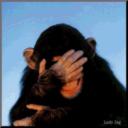Yahoo Answers is shutting down on May 4th, 2021 (Eastern Time) and beginning April 20th, 2021 (Eastern Time) the Yahoo Answers website will be in read-only mode. There will be no changes to other Yahoo properties or services, or your Yahoo account. You can find more information about the Yahoo Answers shutdown and how to download your data on this help page.
Trending News
There is an old Buddhist saying "If you meet the Buddha on the road, kill him."?
Please describe what the sage who gave us this advice actually meant by this strange saying.
10 points and the possibility of obtaining Nirvana in this lifetime for those who get it right :)
15 Answers
- farfulLv 41 decade agoFavorite Answer
The sage in question, is Linji, who was a true reformer. He encouraged his students to free themselves from the influences of buddha, buddhism and its teachings, in order to be able to better discover their own buddha-nature. These concepts may be needed at first, but should be discarded when no longer required.
Full quote:
"Followers of the Way, if you want to get the kind of understanding that accords with the Dharma, never be misled by others. Whether you're facing inward or facing outward, whatever you meet up with, just kill it! If you meet a buddha, kill the buddha. If you meet a patriarch, kill the patriarch. If you meet an arhat, kill the arhat. If you meet your parents, kill your parents. If you meet your kinfolk, kill your kinfolk. Then for the first time you will gain emancipation, will not be entangled with things, will pass freely anywhere you wish to go.
If you meet the Buddha on the road, kill him!
If you meet the patriarchs or the arhats on your way, kill them too...
Bodhidharma was an old bearded barbarian...
Nirvana and Bodhi are dead stumps to tie your donkey to.
The sacred teachings are only lists of ghosts, sheets of paper fit for wiping the pus from your boils."
- 5 years ago
Everyone has a Buddha nature, which does not matter if you are a Buddhist or not. Everyone has a chance to become a Buddha. Having said, there is no higher power or being who can control you. There is no hierarchy. It's not necessary to seek higher power or phenomena, for we miss something we already have. When there is no hierarchy, there is no superior or inferior. Everyone is equal. Most people idolize someone they believe in, which in turn create an illusion of the mind. When you meet the Buddha on the road, you need to kill him that first off you are the buddha, secondly the Buddha appears in front may be some sort of form or spirit to make you believe something, thirdly, if you see Buddha it would be just a delusion. Nothing is absolute or solid; mind is no mind. If you meet the Buddha on the road, he still means nothing
- Anonymous1 decade ago
This saying comes from the Chinese golden age of chan buddhism which was the period that developed what we now call zen.
At that time the buddhist teaching was very centered around escaping limited ideas of what buddhism is. The Buddhist scriptures themselves or even small spiritual breakthroughs could be insidious traps because they could lead the student to think that he or she "knew" something when the true enlightened state was more like a state of "unknowing" or total openness. So what the saying means is if you find that you have some concept of what the Buddha is, or more broadly what truth is, abandon that concept immediately and return to your "beginners mind" or open and inquisitive approach.
- jaiceeLv 61 decade ago
The Zen Master warns: "If you meet Buddha on the road, kill him!" This admonition points up that no meaning that comes from outside ourselves is real. The Buddhahood of each of us has already been obtained. We need only recognize it. Killing the Buddha on the road means destroying the hope that anything outside of ourselves can be our master. We must each give up the master without giving up the search. The importance of things lies in the way we have learned to think about them. How often we make circumstances our prison and other people our jailers! At our best we take full responsibility for what we do and what we choose not to do. The most important struggles take place within the self.
Source(s): I cheated and looked it up. - How do you think about the answers? You can sign in to vote the answer.
- LooneyLv 51 decade ago
Here's a quote concering this:
"It is said that Shakyamuni's last dying words to his disciples were, "Be a lamp unto yourselves." Be your own light, your own authority, your own Buddha. Kill off every image of the Buddha, see who and what you are in this very moment, see that there is no Buddha other than THIS MOMENT."
That seems to be what that idea is based on. Esentially that we are all Buddhas and to not try to live up to some perfect image we have of what we "should" be like but to live in the present as ourselves.
Be yourself - do not try to live up to an idealized image set up by yourself and others.
- Upasakha JasonLv 71 decade ago
If you've identified yourself as a Buddhist, if you derive your identity, if you define yourself as a follower of the Buddha, then you have strenghtened the sense of "I, me, and mine" that is the most pervasive, fundamental ignorance as the Buddha taught. This fetter is the tenth and final fetter that one breaks before attaining arhantship. The koan you describe talks about this very thing.
- dudeLv 61 decade ago
It means, let nothing stand in your way to enlightenment, even the Buddha himself.
Your personal path to enlightenment may not be the same path of the Buddha.
- 6 years ago
Such a suggestion still means nothing to me, greetings, 'J.A.,' jarentved@yahoo.cl. Note: Only one, who does not believe, IS.
- Anonymous1 decade ago
anybody who looks like, acts like and says that they are a buddha is a liar.





